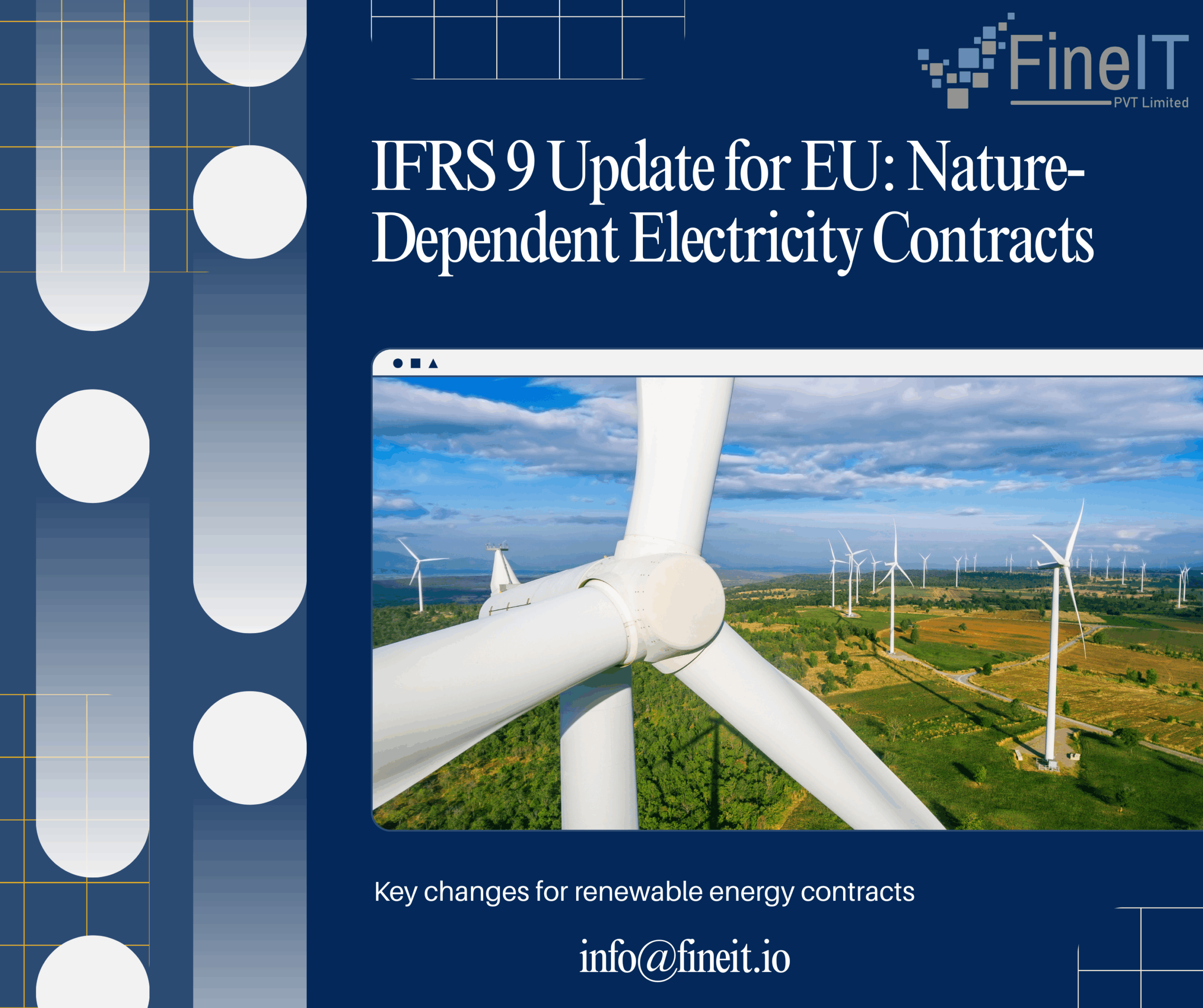The European Union has formally adopted the IASB’s recent amendments to IFRS 9 and IFRS 7, addressing key challenges around nature-dependent electricity contracts, such as those commonly found in power purchase agreements (PPAs) tied to renewable energy. These changes mark a significant step in improving how such contracts are accounted for under IFRS, particularly for entities involved in hedge accounting and sustainability-linked financial arrangements.
Let’s break down what this means for financial reporting and risk management.
🌿 Why the Change Was Needed
With the global shift toward renewable energy, more companies are entering into long-term contracts to purchase electricity from solar or wind sources. These contracts are often variable in volume, depending on weather conditions — which created accounting challenges under existing IFRS 9 hedge accounting rules.
Previously, entities struggled to qualify these contracts for “own-use” exemption or as eligible hedging instruments, because the physical delivery volumes were unpredictable, and often not “highly probable” in the traditional sense required for hedge accounting.
📘 Key Highlights of the Amendments
1. Clarification on Own-Use Exemption
- The amendment clarifies that contracts with variable volumes based on nature-dependent factors (e.g., wind, solar) can still qualify for the own-use exemption under IFRS 9, provided the intent is to take physical delivery and use the electricity for operational purposes.
- This avoids unnecessary classification as derivatives for many renewable energy contracts.
2. Designation of Variable Volume Hedge Items
- IFRS 9 now permits designation of a variable volume of forecast purchases as the hedged item, as long as it is based on a well-defined, observable framework — such as a statistical estimate of expected energy generation.
- This increases the flexibility and realism of hedge relationships, aligning accounting outcomes with actual risk management practices.
3. Enhanced Disclosures Under IFRS 7
- Entities must now disclose more about the assumptions and methodologies used in these contracts — particularly when applying hedge accounting to variable volumes.
- This includes sensitivity analyses and risk exposure narratives that help users understand the impact of weather volatility and energy pricing on financial performance.
⚖️ Impact on Financial Institutions and Corporates
This amendment is particularly beneficial for:
- Utilities and large corporates with long-term renewable PPAs
- Banks and asset managers engaging in structured sustainability-linked derivatives
- Energy-intensive manufacturers hedging renewable input prices
By improving the ability to align hedge accounting with economic reality, these changes:
- Reduce volatility in profit and loss statements caused by mark-to-market swings
- Provide more faithful representation of risk management strategies
- Lower the accounting friction in transitioning to renewable power
🕒 Effective Date and Implementation
- The amendments are effective from 1 January 2026.
- Early adoption is permitted, and encouraged for companies heavily involved in PPAs or green power procurement.
Companies should start preparing by:
- Reviewing existing contracts for qualification under the revised own-use rules
- Updating hedge documentation and designation strategies
- Preparing enhanced disclosures aligned with the IFRS 7 update
Conclusion:
This IFRS 9 amendment is a pragmatic and timely enhancement, especially as ESG and renewable energy initiatives grow globally. By acknowledging the variable nature of green energy and adjusting the accounting framework to reflect it, the IASB has taken a meaningful step toward more transparent, practical, and sustainability-aligned financial reporting.
For institutions using Estimator9, FineIT will incorporate support for the new amendment by Q4 2025, ensuring seamless transition and compliance ahead of the effective date.
Muzammal Rahim Khan is the CEO and Co-Founder of FineIT, bringing over 15 years of expertise in software development, implementation, and technical consulting across global markets including the U.S., U.K., Europe, Africa, and Asia. He has led the design and delivery of enterprise-grade solutions that modernize compliance, risk management, and financial reporting for banks and financial institutions. Under his leadership, FineIT has built flagship platforms such as Estimator9 (IFRS 9) and ContractHive (IFRS 16), empowering clients with automation, accuracy, and audit-ready confidence. Muzammal combines deep technical knowledge with strategic vision, driving innovation that bridges regulatory requirements with practical, scalable technology. His focus remains on building resilient, future-ready solutions that strengthen trust and efficiency in financial services.
